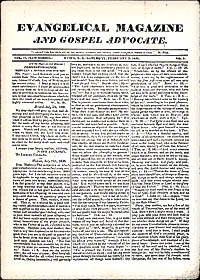Spanner wrote:Oliver Cowdery was in on it at the very least.
...
Even if we set aside all of Cowdery's claims to have personally
witnessed miraculous divine manifestations, we still have this:
>Oliver Cowdery, one of the three witnesses to the
>book, testified under oath, that said Smith found
>with the plates, from which he translated his book,
>
two transparent stones, resembling glass, set in >
silver bows. That by looking through these, he was
>able to read in English, the reformed Egyptian
>characters, which were engraved on the plates.
Assuming that the 1831 report is generally accurate and
reliable, I find it troubling. And it should be troubling to
the students of Mormon history who investigate the very
earliest claims for the "interpreters" or "urim & thummim."
Cowdery, according to all reports, sat next to Smith during
the 1829 dictation sessions, with no curtain separating him
from the "translator."
Did Cowdery really witness Smith "translating" by using
"
two transparent stones, resembling glass, set in silver bows"
???
Modern Mormons can object, by saying that the 1831 source
was not an official LDS testimony or GA pronouncement...
 http://www.sidneyrigdon.com/dbroadhu/NY ... htm#040931
http://www.sidneyrigdon.com/dbroadhu/NY ... htm#040931I see it as evidence of the fact that Oliver Cowdery was willing
to lie under oath, in order to promote the Mormon agenda, as
early as 1830 (if not before).
Perhaps other students of LDS history see Oliver's actions and
words in a different light. If so, I'd like to hear those views.
The modern non-Mormon can perhaps judge that religion to be
a benign (or even a positive) phenomenon, so long as its
members and leaders have typically been sincere and honest.
The modern LDS and non-LDS voters can all mark their ballots
for Mr. Romney, only disagreeing upon the very small point of
whether or not Joe Smith was honest -- so long as the other
early LDS converts were honest and sincere believers.
That is..... if we can be sure of such honesty & sincerity.
UD

